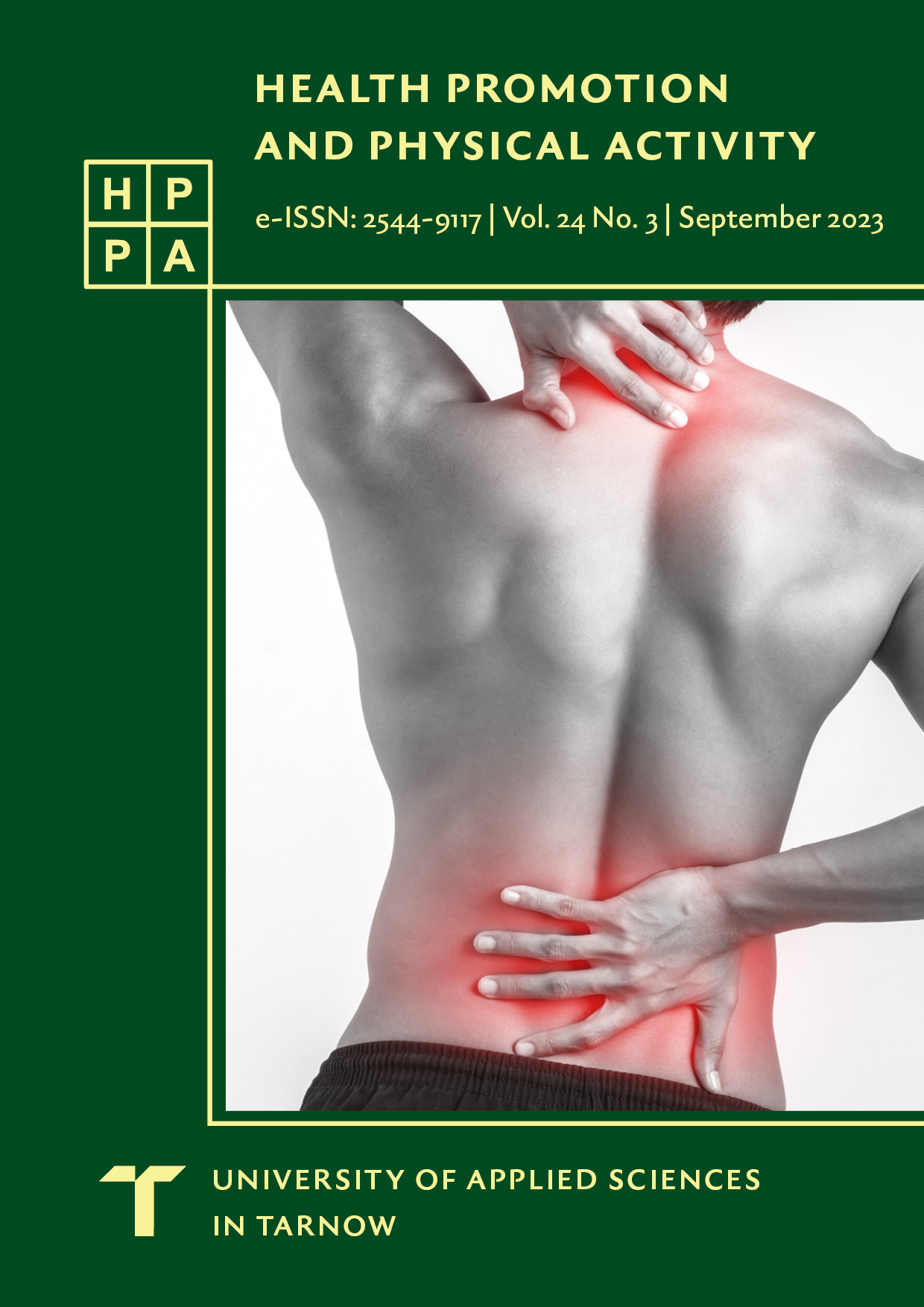Perception of people with intellectual disabilities by residents of the Tarnów region, Poland
DOI:
https://doi.org/10.55225/hppa.532Keywords:
disability, perception of disability, assistance, societyAbstract
Introduction: Social perception of disability is often a more serious problem than the disability itself. Acceptance of people with disabilities by the social environment is crucial, as it promotes their all-round development better than measures taken in individual rehabilitation. The aim of the study was to analyze the perception of people with intellectual disabilities by residents of the Tarnów region.
Material and methods: The study was conducted by a diagnostic survey method using the author's survey questionnaire in March-May 2023. 314 correctly completed questionnaires were included in the study, completed by people between 18 and 67 years of age (mean 25.97 ± 7.97 years). A significance level of p < 0.05 was adopted.
Results: As many as 32.48% (n = 102) of the respondents admit that they have a person with intellectual disabilities in their family or neighborhood. Among the respondents, 54.14% are familiar with local organizations for people with intellectual disabilities and their families, where 17.20% of people admitted that they have done volunteer work for such an organization. A willingness to become a volunteer for such an organization was expressed by 44.90% of people. Respondents overwhelmingly agreed that people with intellectual disabilities should participate in the life of the local community (91.40%). The majority of respondents (79.62%) believe that intellectually disabled people have the same sexual needs as the rest of society, followed by 15.61% who say they have no sexual needs, and 2.87% associate the sexual needs of intellectually disabled people with their degree and type of disability.
Conclusions: Society shows signs of effortless tolerance – it does not want to have closer relations with people with intellectual disabilities, but at the same time does not mind that such people participate in society. Respondents show insufficient knowledge of the sexuality of people with intellectual disabilities.
Downloads
References
Wołowicz-Ruszkowska A, ed. Wsparcie osób z upośledzeniem umysłowym w stopniu umiarkowanym i znacznym (w tym z zespołem Downa) i/lub niepełnosprawnościami sprzężonymi oraz głębokim stopniem upośledzenia umysłowego II: podręcznik dobrych praktyk. Warszawa: Państwowy Fundusz Rehabilitacji Osób Niepełnosprawnych; 2012:7-19. Google Scholar
WHO. ICD-10: International Statistical Classification of Diseases and Related Health Problems. 10th revision. Geneva: World Health Organization; 1992. Google Scholar
APA. Diagnostic and Statistical Manual of Mental Disorders (DSM−IV). 4th ed. Washington, DC: American Psychiatric Association; 1994. Google Scholar
Piotrowicz R, Rymarczyk K. Niepełnosprawność intelektualna – neurorozwojowe zaburzenie. In: Rybakowski FM, ed. Spektrum autyzmu: neurorozwojowe zaburzenia współwystępujące. Łódź–Warszawa: Krajowe Towarzystwo Autyzmu; 2015:155-179. Google Scholar
Kazanowski Z. Społeczny wymiar współczesnej koncepcji niepełnosprawności intelektualnej [= The social dimension of the contemporary concept of intellectual disability]. Annales Universitatis Mariae Curie-Skłodowska. Sectio J: Paedagogia-Psychologia. 2015;28(1):33-43. doi: 10.17951/j.2015.28.1.33. DOI: https://doi.org/10.17951/j.2015.28.1.33 Google Scholar
Kanar M. Postawy studentów wobec osób z niepełnosprawnością ruchową oraz osób z niepełnosprawnością intelektualną [= The attitude of students towards people with physical or intellectual disabilities]. Ogrody Nauk i Sztuk. 2021;11:127-138. doi: 10.15503/onis2021.127.138. DOI: https://doi.org/10.15503/onis2021.127.138 Google Scholar
Szwed R. Metody statystyczne w naukach społecznych: elementy teorii i zadania. Lublin: Wydawnictwo KUL; 2008. Google Scholar
Leśniak J. Społeczne postrzeganie osób z niepełnosprawnością intelektualną. Państwo i Społeczeństwo. 2020;20(1):27-41. doi: 10.34697/2451-0858-pis-2020-1-002. Google Scholar
Radlińska I, Karakiewicz B, Kolwitz M, Kemicer-Chmielewska E, Flaga-Gieruszyńska K. Identyfikacja czynników politycznych, prawnych, ekonomicznych, społecznych i technologicznych tworzących szanse i zagrożenia dla osób niepełnosprawnych intelektualnie w stopniu umiarkowanym. Pomeranian J Life Sci. 2019;65(1):7-13. doi: 10.21164/pomjlifesci.52. DOI: https://doi.org/10.21164/pomjlifesci.599 Google Scholar
Kijak R. W stronę rozumienia seksualności osób z głębszą niepełnosprawnością intelektualną. Forum Oświatowe. 2011;1(44):137-151. Google Scholar
Majewski T. Zatrudnienie wspomagane osób niepełnosprawnych. Szkoła Specjalna. 2009;2:86-93. Google Scholar
Downloads
Published
How to Cite
Issue
Section
License
Copyright (c) 2023 Weronika Gieniec, Beata Jurkiewicz

This work is licensed under a Creative Commons Attribution-ShareAlike 4.0 International License.









